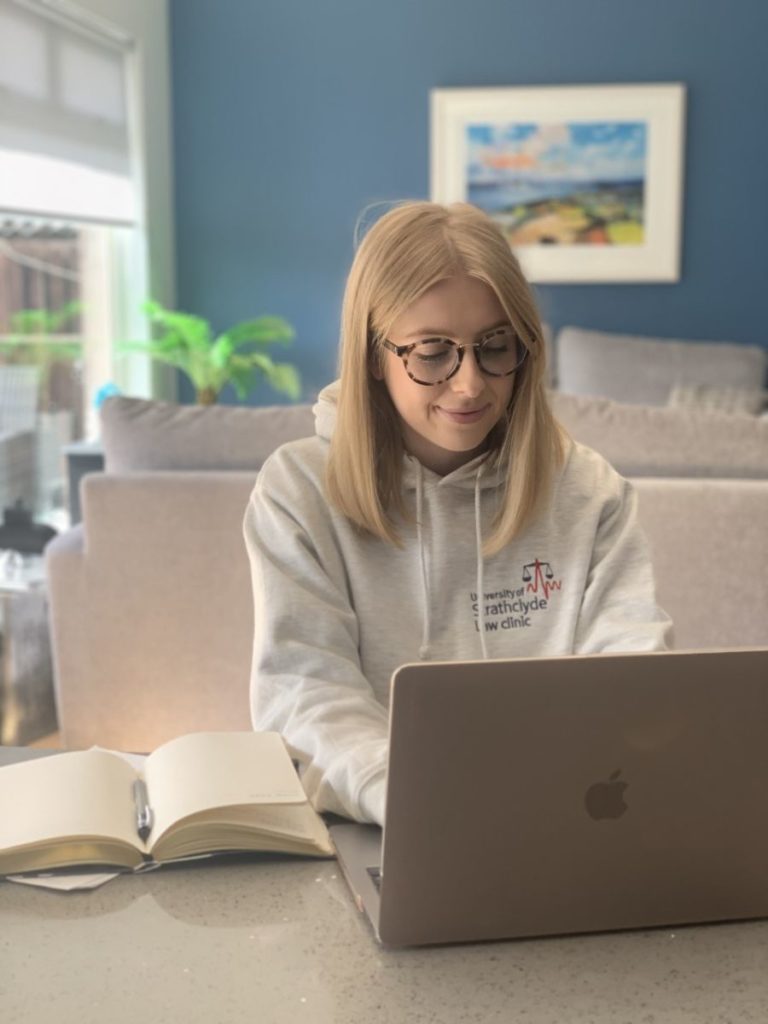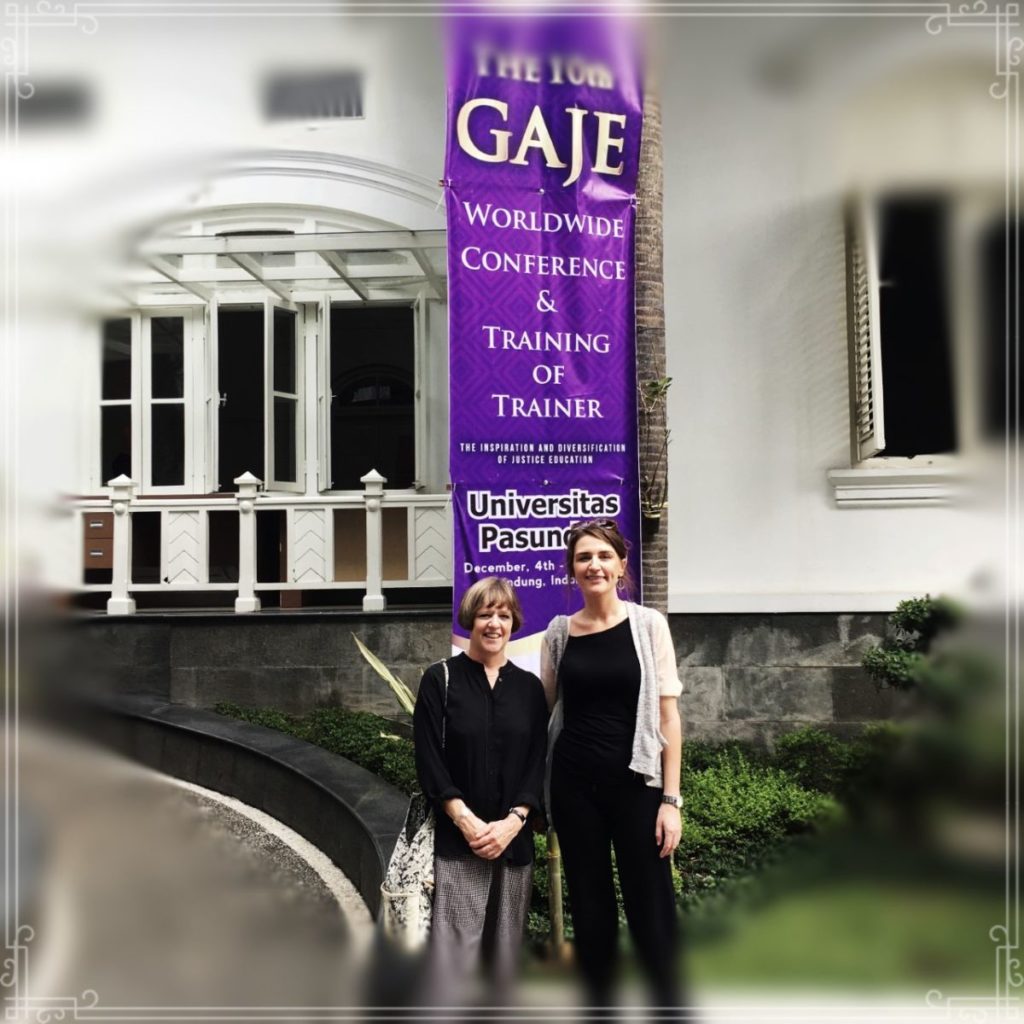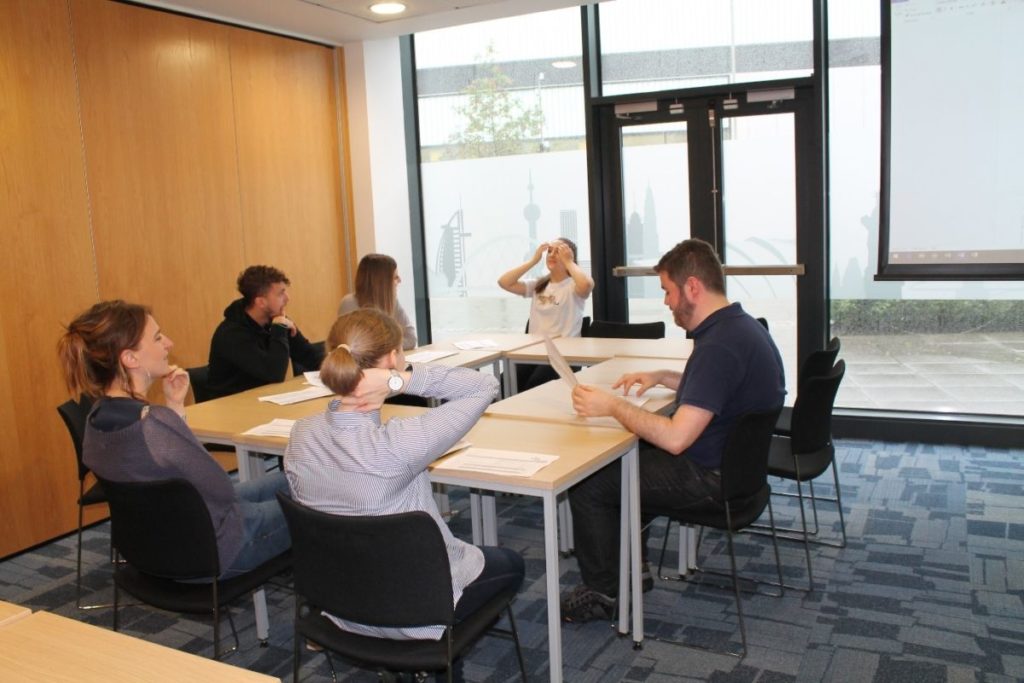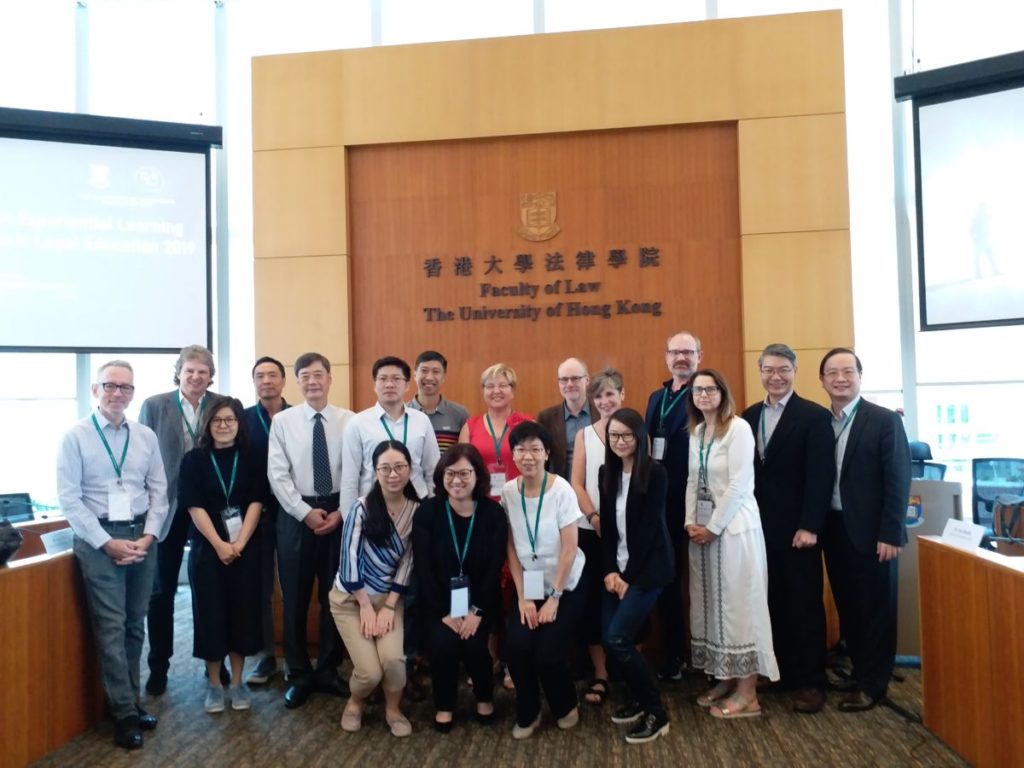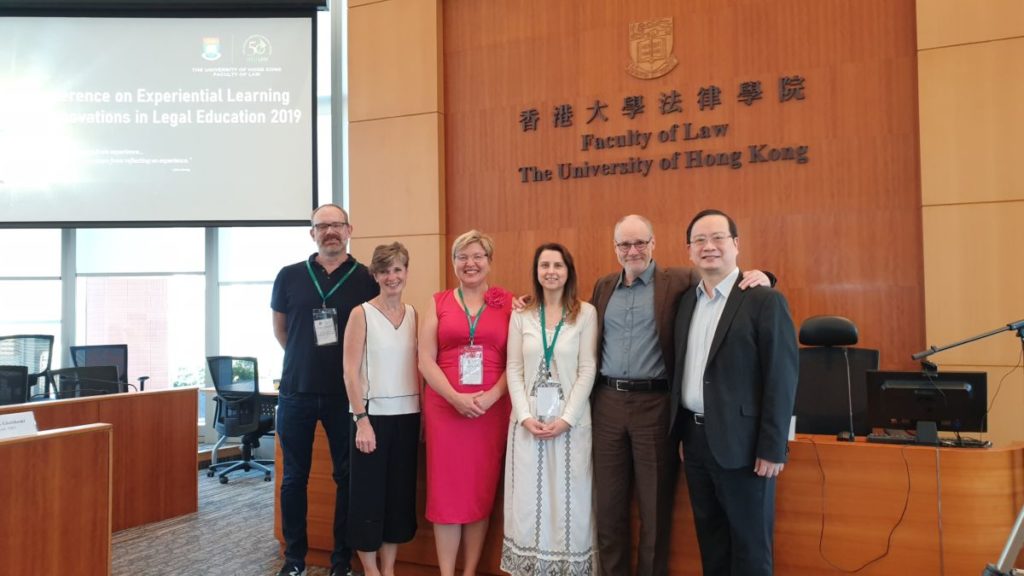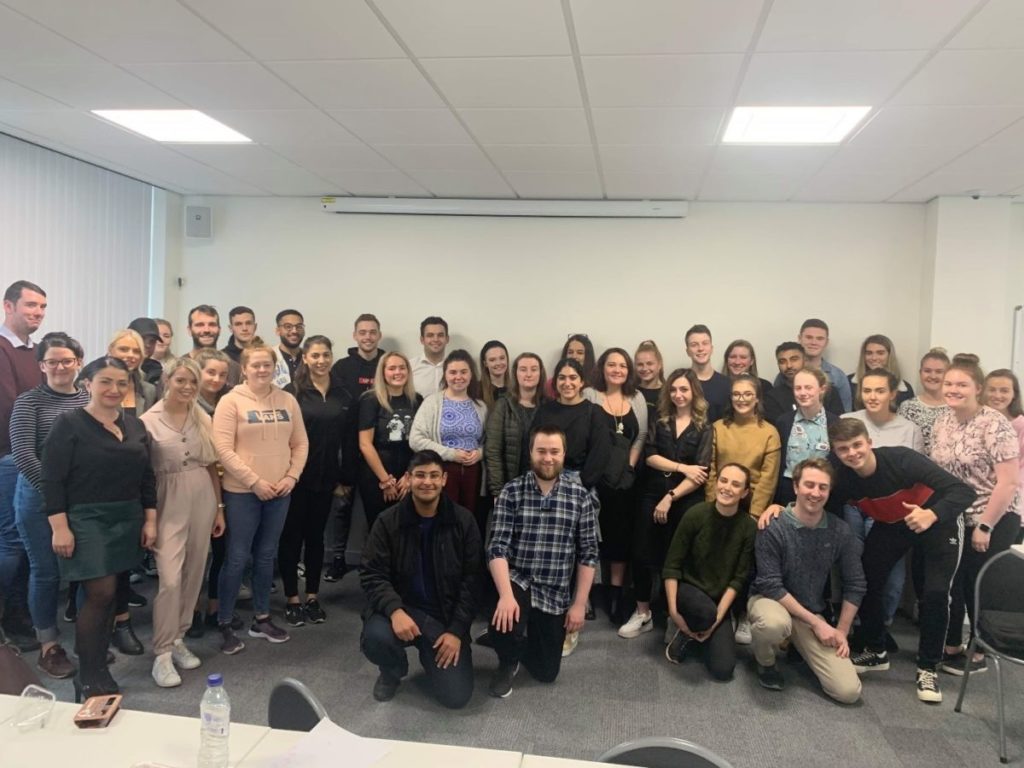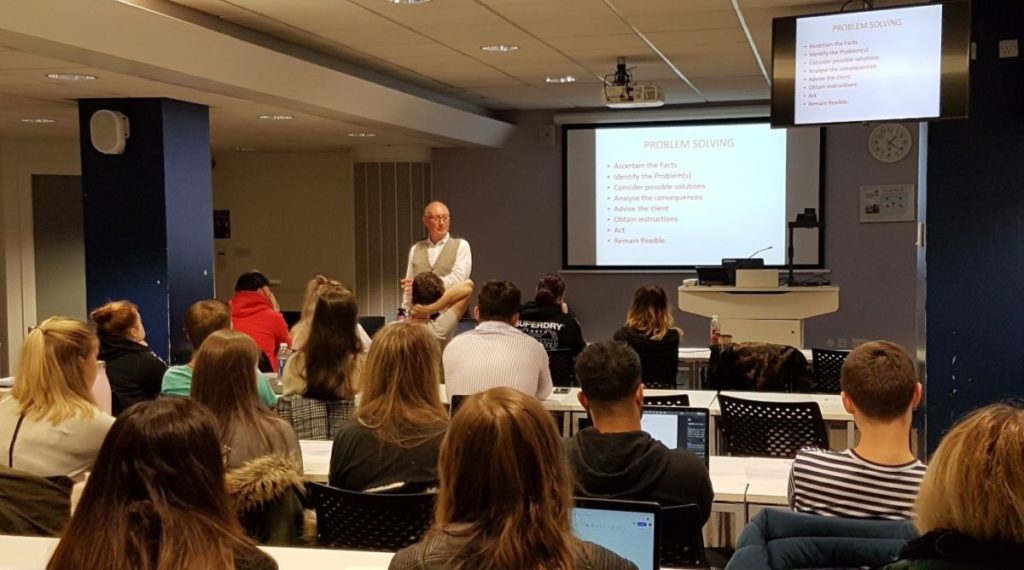Students and staff from the University of Strathclyde recently took part in the ninth annual Scottish University Law Clinic Network (SULCN) via zoom on 27 May.
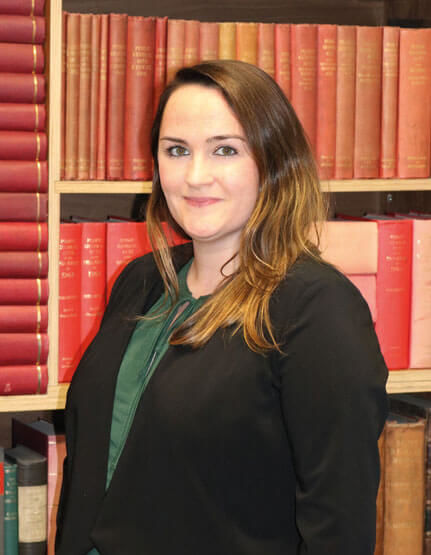
The event, hosted online this year as a result of the Covid-19 pandemic, was established in 2012 with the aim of encouraging Law Clinics across Scotland to share ideas and work together to improve access to justice.
SULCN was proud to welcome guests to a webinar led by the organizations founding student members, Eamon Keane, Hannah Cosgrove and Ryan Whelan. Throughout the event Eamon, Hannah and Ryan reflected upon their experience founding SULCN, how pro bono has affected them throughout their legal careers and how their practice has been affected as a result of the lockdown.
James Anderson, one of the student representatives attending the conference on behalf of the Strathclyde Law Clinic reflected on the event stating:
“It was fantastic that this event could be put together on short notice, continuing the relationship not only between Law Clinics but with Law Clinic alumni and The Law Society of Scotland. It’s refreshing to see that our spirit for access to justice remains undiminished despite the current circumstances.
“I have been fortunate enough to attend the last three editions of the annual SULCN event and I have found the experience to be highly motivational, learning from a variety of contributors from across the Scottish access to justice community. This year was no different and it was particularly inspiring to hear from Eamon, Hannah and Ryan the three founding student members of SULCN.
“Now that I am graduating from University, I will look forward to attending future SULCN Conferences as an alumni (hopefully) in person.”
Kirstie Webb, a student advisor at the University of Strathclyde Law Clinic also reflected on her experience of the event saying:
“Despite not being able to (physically) host the ninth annual SULCN conference, it was fantastic to be part of the webinar to hear from each of the founding student members of SULCN. It was both fascinating and inspiring to hear the different legal journeys of the founding members since their time at university and within SULCN. It was so encouraging to see such a large turnout to hear about the importance of pro-bono work… albeit virtually!
“As my time at the University of Strathclyde Law Clinic comes to an end, I look forward to seeing the continual great work of Law Clinic’s across Scotland and the growth of SULCN.”
Please click here to find out more about SULCN, its work, members and events.
To receive monthly updates on the work completed by the University of Strathclyde Law Clinic straight to your email, please sign up here.
